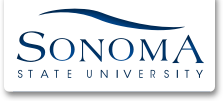Recommended By
:
University Affairs Office
Approved
:
Ruben Armiñana, President
Issue Date
:
Friday, March 22, 1985
Current Issue Date
:
Monday, February 1, 1999
Effective Date
:
Monday, February 1, 1999
Contact Office
:
University Affairs Office
Policy number
:
1985-3
- Background
The public has a right to know the University's policies, plans, programs, and activities.
To that end the University strives to maintain positive relations with the media. Essential to maintaining such a relationship is the consistent provision of accurate and helpful information in an atmosphere of respect, fairness, and candor.
The University Affairs Office (UAO) is responsible for coordinating the collection and dissemination of news about the University. In order to be effective, the UAO needs to be well informed about what is happening at the University, in the event of controversy as well as in routine matters. The UAO is the campus' primary contact with the media. It is the office authorized to issue official statements of university policy and action.
On occasion, other members of the University may be contacted by the media or may want to initiate contact with the media to provide information or comment. They are encouraged to do so on public issues about which they have expertise or on campus matters for which they have responsibility, and are asked to inform the UAO of such communication. - Guidelines
The following guidelines are provided by the UAO to help ensure appropriate and prompt handling of media inquiries.- Obtain the reporter's name and the publication or station for which he or she works. If you feel that the request for information is reasonable, give the reporter your full cooperation.
- Whenever possible, especially if the subject is controversial, notify the UAO in advance of your discussion with a reporter. This permits better preparation and coordination with other individuals or offices involved.
- In answering questions, be fair, friendly, and factual. Remember that honesty is the best policy in dealing with the media. Without it, no individual and no institution can maintain credibility.
- Normally you would be asked to comment only on matters within your areas of expertise. Sometimes, however, a reporter may ask for comment on a subject outside your area. If you do not wish to comment, tell the reporter so. Refer the reporter to the UAO if you feel the questions can best be answered by other persons within the University.
- Some reporters may ask you to comment on a controversial issue with the assurance that, if you so request, your name will not be used. Unless you know the reporter well, it is not usually wise to assume that your name will not be used.
- Most reporters dislike material which is "off-the-record." If for some reason, however, you feel that you must make remarks "off-the-record," observe the following:
- Preface each "off-the-record" statement by saying, "The following is off-the-record." Saying belatedly, "The material I have just given you is off-the-record" does not obligate the reporter to comply with your request under current journalistic canons of practice. Not all reporters will honor off-the-record statements.
- Indicate clearly to the reporter when your comments are "on-the-record" again.
- Remember that when you identify yourself as a member of the universiy community, your comments may be interpreted as representing the institution. Therefore, if you give a personal opinion on a subject, emphasize to the reporter that you are speaking for yourself, not for the university.
- You should assume that you will not see the reporter's story before it is published or broadcast. The newsperson is under no obligation to secure your advance approval. If scientific or technical data are involved, you might suggest that the reporter check his or her story with you for accuracy, particularly if the reporter is not a writer specializing in the field. Some reporters are willing to check technical data with the source if time permits.
- When an interview is for the broadcast media, remember that people in radio and television news usually can report only the barest essentials of a story (often only 10 seconds of air time). They are looking for succinct answers to one or two questions and it is best to avoid providing time-consuming details or complicated answers.
- Media training and a guide to dealing with the media are available through the UAO.
University-wide observance of these guidelines in dealing with the media will encourage reporters to seek information from official sources, create good will, and help assure accurate and balanced news stories.
Updated February 9, 1999 by UAO.WebContact@sonoma.edu

